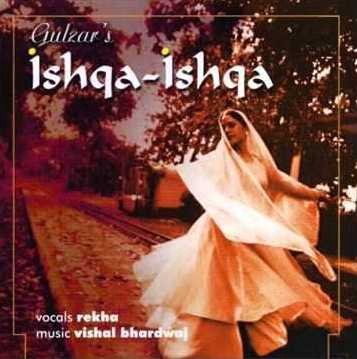Sisters Of The Sufi Order
Rekha, Kavita, Ila, Jaspinder, Richa, Sapna and the seventh one missing.
 Rekha Bhardwaj.
Rekha Bhardwaj.Despite singing for all the major music composers in Bombay, Rekha Bhardwaj was upset that none had dubbed her the most soulful Sufi singer in the country.
That was because everyone in the fray was elbowing for the top spot.
Kavita Seth, Ila Arun, Jaspinder Nirula, Richa Sharma, and even the near-forgotten Sapna Awasthi.
All of them had sung Khusro and Rumi–inspired compositions and thought no less of their claim for the trophy.
Rekha decided to call for a singers’ coven in which Rumi himself would decide who amongst them was the best in the business.
A tent was set on the grounds of Hanging Gardens. Draped in black shawls, the gathered women settled in a huddle, to hold hands and call for the spirit of Rumi — the Illuminated one.
Rumi appeared with very little effort, his eyes shining with the brilliance of a man who had arrested stars in them. Doesn’t take much to please him; the sight of such a talented bunch of aggravated women was surely something to soothe his nerves in these trying times.
Rumi: “Hmn, so what will it take to prove that one of you is the most sufiana?”
Rekha was the first to contest, “Ghar jala liya hai…” in her sonorous voice, sullen in distress.
Richa quickly butted in her high-octane pitch, “Teri kaali ankhiyon se zind meri jaage,” in a bid to impress Rumi.
Sapna Awasthi, sensing her elimination and feeling threatened that she was not going to be considered, screeched, “Kuwa maa doob jayoongi.”
This was not going to go down well with the doyenne Ila Arun, scrimping, she grated her betel stained teeth and taunted the upstarts, “Nigodi badi harami hai… jo baat sunne na meri…nigodi!”
Embarrassed at the cat fight which was about to take place, Kavita Seth shyly raised her voice of dissent in her low timbre request, “Oh re Manva, tu toh bawra hai,” hoping that her quiet resignation would earn her some brownie points with Rumi. She had recently recorded an album called Sufiana.
Jaspinder decided to take a defeatist view of the matter, yodelling, “Yeh toh hona hi tha…” summing up the competitive mood of the gathering.
A long silence followed Jaspinder’s trilling endnote.
Rumi spoke, “Your bickering reminds me of my youth, when I walked all the way to Damascus in search of my master Shams-E-Tabriz. Why was I looking for him when he was not there? His essence was in me. I was looking for myself. I cannot help you ladies, go back home, your search is pointless till you surrender to it.”
Dispirited, the women walked downhill into the pall of the twilight hour, not sure if Rumi had given them a sign.
They walked into a teahouse and were sipping from their cups when they looked up at the breaking news update on a telly screen mounted on the cash counter.
Some days ago, a certain curly -haired stout woman in Pakistan, visibly shaken at being accorded the Best Living Sufi Singer in the World title had screamed ‘Jalal’ (meaning glory, anger, dignity and the first name of Jalaluddin Rumi) and walked out of the back door of her house.
Covered in hijab, she is said to have glided through a busy market square and headed to the surrounding mountain range. She has been missing ever since. She is said to have renounced the world.
The six women seated at the table took an unspoken pledge. Holding hands yet again, eyes shut, they nodded to walk out in all possible directions in search of that missing woman — far and wide they would traverse, as dervish women circling the universe in their flowing robes.
It was the only way for them to come home to themselves. That missing woman was Abida Parveen.
https://medium.com/media/5f2df8ec7ffb2ae4e0ae7aeea2ed6b5d/hrefTrivia: In December 2002, Rekha Bhardwaj released her seminal music album Ishqa Ishqa — lyrics by Gulzar, music by Vishal Bhardwaj. Ghar jala liya hai is one of the tracks from the album.





